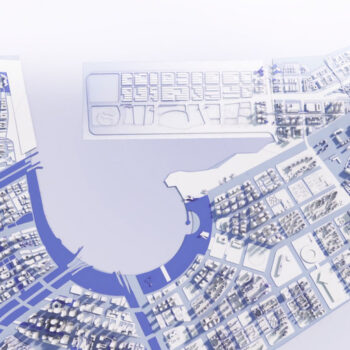Cervical and breast cancer remain major threats to women’s health, especially in rural areas of China where healthcare resources are sometimes insufficient. To show its seriousness in addressing the problem, Tencent announced it would donate tens of millions of US dollars to fund a new healthcare program to prevent and treat cervical cancer on the third International Day of Action to eliminate cervical cancer (November 17, 2023).
The Pilot Project to Prevent and Control Two Cancers for Women, known as the Two Cancers Project, is being rolled out under Tencent’s Sustainable Social Value initiative in conjunction with the China Center for Disease Control and Prevention, Peking Union Medical College and other partners. The program takes a three-pronged approach to reduce the occurrence and harm of the two forms of cancer.
- Prevention: Make available standardized screening, diagnosis, medical treatment and related services to more than one million girls and women of appropriate age groups, (ie 9-14 and 35-64) residing in 30+ low resource targeted locations in seven provinces. Boost HPV vaccination among girls to prevent cervical cancer and enhance understanding of the two cancers through better health education.
- Capacity Building: Raise quality and standards of medical care through the provision of additional and proper medical equipment such as mobile screening vehicles, colposcopy and ultrasound machines. Lift competency of doctors and medical personnel through national-level training and assessment available online and offline.
- Setting up Systems: Introduce smart tools to solve pain points for patients and doctors. Harness technology such as artificial intelligence to assist in diagnosis and treatment processes. Establish an integrated, easily accessible digital information platform for more effective monitoring and management of the diseases nationwide. Establish robust quality control system supervised by experts.
Breast cancer is the number one cancer affecting women in China, as it is in the rest of the world. Cervical cancer is ranked sixth most common among Chinese women while fourth worldwide. Of greater concern is that the high occurrence and mortality rates of the two cancers is growing, with patients trending younger in China.
If detected early, both types of cancer can be effectively treated and at lower medical costs. As such, the World Health Organization (WHO) launched a global strategy in 2020 to accelerate the elimination of cervical cancer and set a 90-70-90 target to be achieved by 2030, that is, to vaccinate 90 percent of all girls against human papillomavirus by the age of 15, to expand access to screening services for 70 percent of women, and to expand access to treatment for 90 percent of women with pre-cancerous lesions, and palliative care for 90 percent of women with invasive cancer. In 2021, WHO’s Global Breast Cancer Initiative set a goal to prevent 2.5 million deaths from the disease by 2040 by advocating better awareness, timely diagnosis and comprehensive treatment.
In addition to funding for the Two Cancers Project, Tencent is supporting China to answer WHO’s calls to action. The company is deploying technology to improve the screening and diagnosis process as well as advance health promotion and awareness.
“Two Cancers Screening” Platform
Tencent and the Peking Union Medical College developed the “Two Cancers Screening Platform” to enhance efficiency and effectiveness. Whereas rural and grassroots areas used to rely on paper records, the new platform gives doctors easy access to a patient’s previous screening data and medical history. Comparing new data with the old, doctors can make more insightful diagnosis and decide the best follow-up action or treatment for a patient. Duplicate tests may be avoided and a better overall understanding of the diseases can be achieved.
In terms of patient records, paper-based systems are prone to more input errors. The Two Cancers Project introduces the use of advanced optical character recognition and ID card scanning technology to create more accurate digital records.
A Weixin mini program also helps doctors contact patients more efficiently by phone, SMS or Weixin to communicate test results, follow-up actions or treatment plans. In a test scenario, more patients responded to call backs than when only the telephone was used.
AI Electronic Colposcopy-Aided Diagnosis System
In cervical cancer screening, the so-called “last mile” is crucial in identifying women at high risk of developing the disease so that early intervention may be prescribed. In targeted areas, a scarcity in colposcopy imaging equipment and experienced doctors is causing a bottleneck in the “last mile”, delaying timely diagnosis. Tencent is helping to alleviate the problem with its AI Electronic Colposcopy-aided Diagnosis System. The application of artificial intelligence assists doctors to quickly identify cervical cancer and the precise location of precancerous lesions for follow-up biopsies to be performed.
Intelligent Training and Public Education
Leveraging its expertise in digital content creation, Tencent has developed professional, interesting and intelligent online training for medical practitioners that motivates and incentivizes them to learn. At the same time, fun and interesting content in line with the culture, tradition and interests of women in targeted areas will be distributed through mass and social media channels, as well as via lectures and experience sharing events, to arm women with better understanding of the two cancers and knowledge on prevention and control.
With its commitment to use “Tech for Good”, Tencent will continue to invest in research, technology and actions to help eliminate breast cancer and cervical cancer as public health problems, saving the lives of tens of millions of women.





